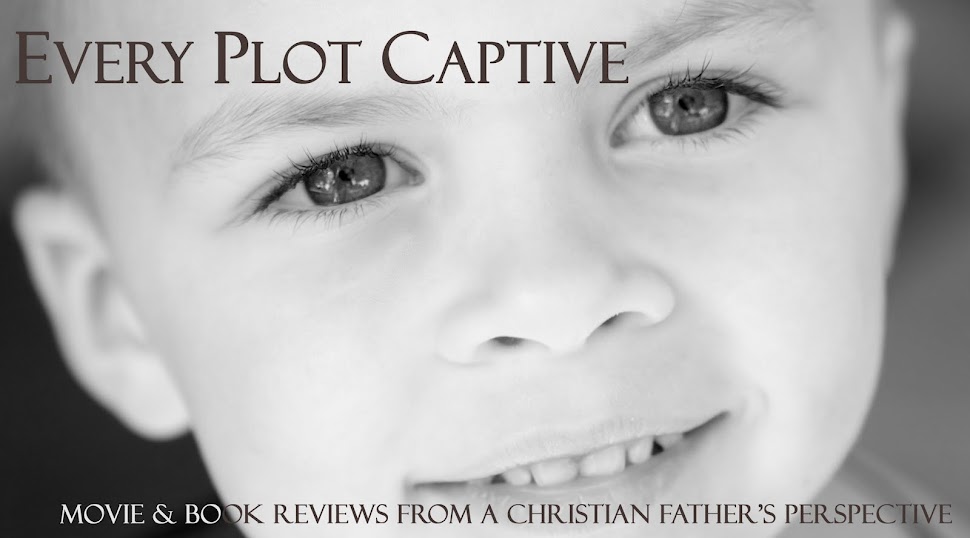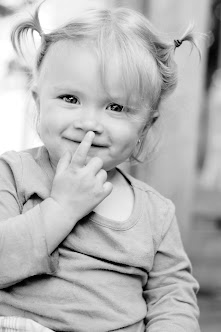Last year, when we went to the theater to see the Dawn Treader movie, I walked past a large poster that caught my eye because of the phrase, “Presbyterian Steel” in large print, right around eye level. It was the promo poster for True Grit, the 2010 remake of the ’69 John Wayne film version of Charles Portis’s ’68 novel.
There is a fine line between revenge and justice.
True Grit walks that line.
The main character, a 14-ry-old girl has hired the services of a
US Marshall to help her track down and apprehend her father’s killer, so that he might be brought back to her county to face judgment and justice.
Like every service in our old Reformed Church, the movie began with a time of silence [we thought one of the kids had hit the mute button] … then the screen went black and the words of Proverbs 28.1a appeared: The wicked flee when no man pursueth…
This was the story of that process taking place, only in a somewhat different fashion [it was no man, indeed, it was a 14 yr old girl drowning in a man’s duster and hat].
As soon as it started, the film transported me back 2 decades to my childhood watching Shane in my buddy’s basement before he slugged me and I had to wrestle him down to make him stop.
Another such moment occurred at the scene where Maddie rolled up newspaper to make her father’s oversized hat fit … I had an instant flashback at finding an ancient newspaper rolled up inside the brim of my grandfather’s olive-colored Stetson hat in our farmhouse attic. I never knew why he did that until now – it was a way to make a slightly larger hat fit well.
In standard Coen Bro fashion, this film is over the top … but only slightly … and delightfully. It is rough-edged and strangely, hauntingly beautiful … there were several scenes [also typical for the Coen bros] that seem to flow and float in ways too fantastic to be real, one gets the sense that they are watching, or even sometimes inside of the movie, as if in a dream [the scene w/ the bearskinned traveller and the ending where she is literally leaning on/upheld by the arms of her savior].
It strikes one as purely authentic in the details. From the foamy spit we see flying out from between tobacco-stained teeth and untrimmed whiskers on the dry mouth of Lucky Ned Pepper to the large chunks of tubers that look as if they were cut with a dull blade and dropped into the thick bean stew boiling in a kettle over an open hearth.
The men use their guns as tools, Rooster regularly fires his gun into the air to call for help, to signal his presence or in acknowledgment of a message, to scare a vulture, or any number of other ways. This is a man who uses his piece as a tool and is well acquainted w/ it as such. They are convincing outdoorsmen – quite familiar with the realities of fire, smoke, knives and arterial wounds.
A thread of gray runs through the entire film and we are never taken far from the pall of death. It stays in the frame from the first to last minute, though not dominantly. It is not the hero nor the victor. In the end, it is only able to bruise the heal [of her hand], while, because of the sacrifice of a hero [who, himself also portrays a redemptive trajectory], our heroine overcomes.
Bridges’ gravelly mumblings are a bit forced. I was never able to really get used to them even by the end. But after a few minutes, their quasi-victorian overly-articulate and involved-Western dialogues quickly grew on me, and I came to really enjoy their way of speaking. Because of the scripting, this was the funniest movie I have seen in years – it was literally hilarious at several points. I can’t wait to watch it again. It was a hoot.
Maddie is not the model of feminine beauty, but she is never once purported to be. She is the narrator’s retrospective voice that both reassures and corrects ones posture as the film progresses. At the end, we see her, a somewhat deformed, and sour-as-ever old maid … again, not something our daughters would be tempted to emulate, I don’t think.
As w/ all their movies, the plot unfolds like a tractor beam drawing the characters inexorably forward. It is fate, predestination, the unresistable end in which they are destined to find themselves – but what a ride.
The last ten minutes contain more twists and turns than you would imagine possible, but they are all straightforward in a way simple and direct [and exciting] enough for my five year old to keep straight.
Another Coen bros trademark is the use of weather as a instrument of storytelling or as a supporting member of the cast –the falling snow in the night sky, dull gray sky over dead trees, or cracked desert earth - it often serves as a Shakespearean omen or an empathetic element almost linked by some invisible environmental thermostat to the mood of a scene.
The musical score was very fine w/ regular refrains and variations throughout of the hymn that accompanied the opening scene, culminating in Iris Dement’s entrancing rendition of Leaning on the Everlasting Arms.
I have to admit that I am writing this review less than a day after the only time I watched this film, and that w/ my three sons crawling all over me, in fact, I should say that I didn’t so much watch the film as I saw most of its parts [and heard some of them too] between their interruptions about food, bathroom breaks, pillow fighting, etc. But the film made such an impression, visually and with the dialogue that slipped through, that I just can’t shake it, and can’t wait to watch it again. That’s the mark of a good film, and so I give four of five stars.
MEMORABLE QUOTES:
"How long you boys been mounted on sheep down there?"
“There is nothing free except the grace of God."
"I always go backwards when I'm backing up."
"I’m struck … La Boeuf has been shot, brambled, and nearly severed his tongue, not only does he not cease to talk, but he spills the banks of English."
“It'll be the biggest mistake you ever made, you
Texas brush-popper.”
“You give out very little sugar with your pronouncements. While I sat there watchin' I had some thought to stealin' a kiss... though you are very young, and sick... and unattractive to boot. But now I have a mind to give you five or six good licks with my belt.”
“I thought you were going to
say the sun was in your eyes — that is to say, your eye.”
“[He is] down by the creek performing his necessaries.”
“I mean to kill you in one minute, Ned. Or see you hanged in
Fort Smith at Judge Parker's convenience. Which will you have?”














